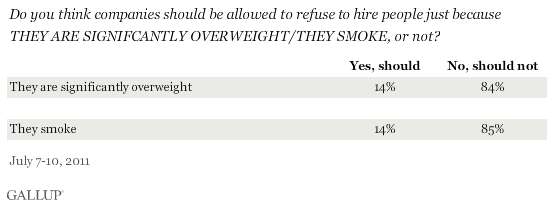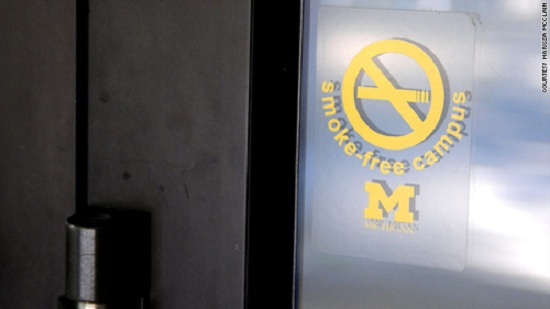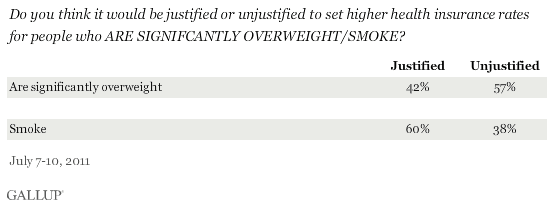
According to the latest Gallup Poll.
More than 8 in 10 Americans think it is not right for companies to refuse to hire people just because they are significantly overweight or smoke. Fourteen percent say the practice should be allowed for each.
The views Americans express in the July 7-10 poll are essentially unchanged from prior Gallup readings on the same questions since 2005. In 2003, Gallup also found most Americans saying that if they were in a position to hire someone, it would make no difference to them if that person were overweight (79%) or smoked (74%).
While the new poll found that for the first time a majority of Americans want smoking to be banned in all public places, far fewer people support making it completely illegal in the United States. Taking all these findings about smoking together shows that Americans — while generally in favor of not having others smoke around them — appear mostly supportive of an individual’s freedom of choice to use tobacco.
But, they do favor higher health insurance rates or smokers but not for the very obese.
In contrast to the lack of support for hiring discrimination against smokers, the majority of Americans (60%) say it is justified to set higher health insurance rates for smokers. Thirty-eight percent say it is unjustified.
Similarly, Americans are more supportive of setting higher health insurance rates for people who are significantly overweight than they are of allowing companies not to hire such people (42% vs. 14%). However, the majority — 57% — say it is unjustified to set higher rates just because someone is very overweight.
Here is the chart:
So, what are the implications?
Most Americans say live and let live. As long as YOUR behavior does not affect me, then go for it.
However, a majority does now favor a ban in smoking in public places (as second hand smoke does affect others). But, if you want to eat yourself to poor health and literally to an early death, then it is your business.
As companies across the United States face the challenge of maintaining a healthy, productive workforce and grapple with rising health insurance costs, corporate hiring policies and insurance rates for smokers and very overweight people are becoming prominent issues.
Americans are clear on one point, though — they do not support allowing companies to discriminate against smokers or significantly overweight people when making hiring decisions. Whether a national consensus or corporate policy, however, has any impact on a specific hiring situation is a separate issue. The data confirm that if a man is making the hiring decision, he may be more likely than a woman to discriminate against a very overweight person — similar to what Gallup has found in the past.
Americans are more divided when it comes to how to set health insurance rates for smokers and the very overweight. While a majority say it is justified to set higher rates for smokers, a similar majority says it is unjustified to do the same for significantly overweight people.








